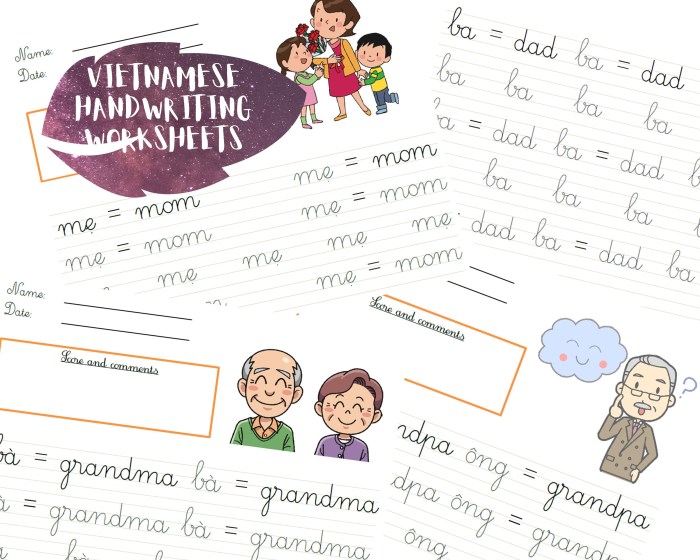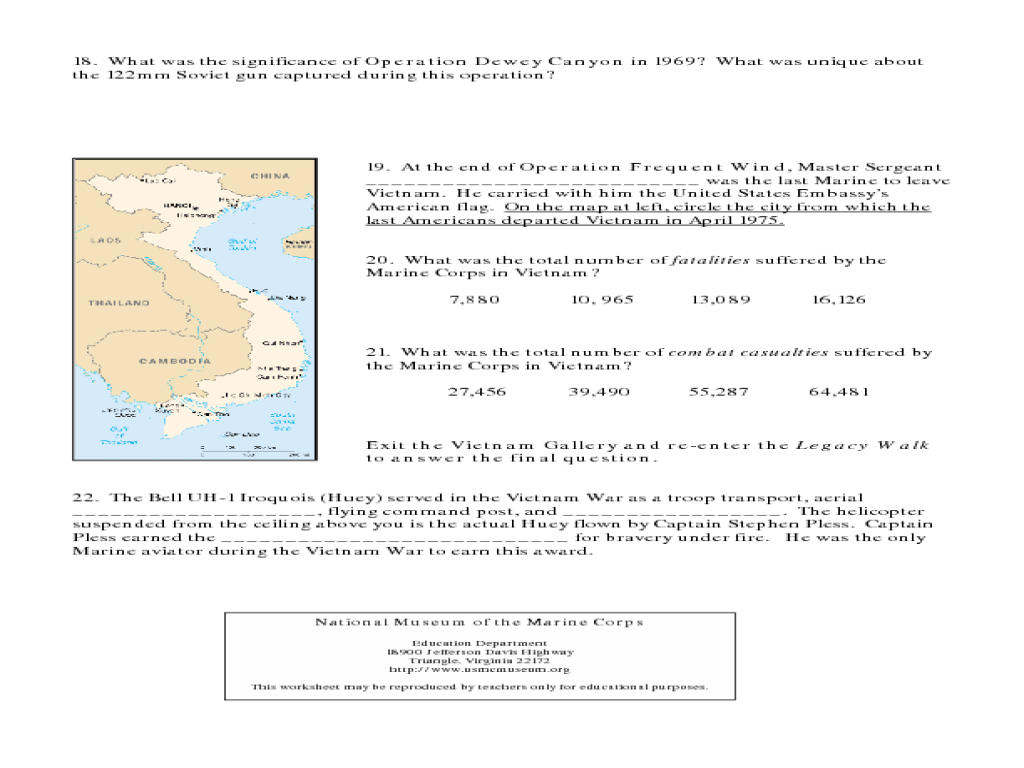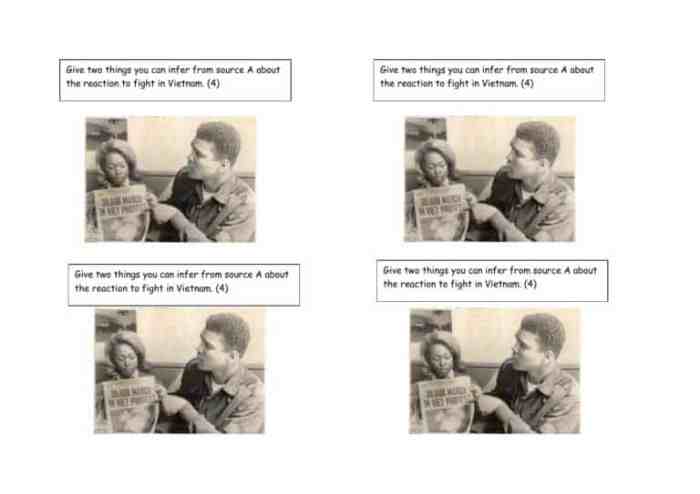Letters home from vietnam worksheet answers provide a unique and invaluable window into the experiences of soldiers and their families during the Vietnam War. These letters offer firsthand accounts of the physical, emotional, and psychological challenges faced by those involved in the conflict, shedding light on the complexities of war and its lasting impact.
Through an in-depth analysis of these letters, we gain insights into the soldiers’ daily lives, their hopes and fears, and their struggles to make sense of the horrors they witnessed. The letters also reveal the profound impact of the war on families back home, as they grappled with worry, uncertainty, and the possibility of losing loved ones.
Historical Context

Letters written home from Vietnam during the war played a pivotal role in shaping the public’s perception of the conflict and its impact on American society. These letters provided firsthand accounts of the soldiers’ experiences, offering insights into the daily realities of war, the emotional toll it took on individuals, and the complexities of the political landscape.
The Vietnam War, fought from 1955 to 1975, was a highly divisive and controversial conflict. The letters written home from Vietnam became a vital means of communication between soldiers and their families, serving as a lifeline for emotional support and a window into the realities of the war.
Role of Letters in Maintaining Morale and Communication
- Letters from Vietnam served as a critical source of morale for soldiers, providing them with a connection to home and loved ones.
- These letters also facilitated communication between soldiers and their families, allowing them to share their experiences, fears, and hopes.
- The letters played a crucial role in maintaining a sense of normalcy and connection during a time of great uncertainty and hardship.
Content Analysis

Common Themes and Topics
- Combat experiences:Soldiers often described the horrors of war, including combat encounters, injuries, and death.
- Emotional toll:Letters frequently conveyed the emotional toll of war on soldiers, including fear, loneliness, and disillusionment.
- Political views:Soldiers expressed their opinions on the war, ranging from support to opposition.
- Home life:Letters also included updates on family and home life, providing soldiers with a sense of connection to their loved ones.
Emotional Tone and Language
The emotional tone of letters home from Vietnam varied greatly, reflecting the diverse experiences and perspectives of the soldiers.
- Optimism and patriotism:Some letters expressed optimism and a belief in the war’s purpose.
- Fear and uncertainty:Others conveyed fear and uncertainty about the future.
- Anger and frustration:Many letters reflected the soldiers’ anger and frustration with the war and its leadership.
- Loneliness and isolation:Soldiers often expressed feelings of loneliness and isolation, despite being surrounded by fellow soldiers.
Perspectives of Soldiers and Families
The letters home from Vietnam offered contrasting perspectives on the war.
- Soldiers:Soldiers’ letters often focused on the immediate realities of war, including combat experiences, daily life, and their emotional state.
- Families:Family members’ letters expressed concern, support, and a desire for their loved ones to return home safely.
Literary Techniques: Letters Home From Vietnam Worksheet Answers
Symbolism, Imagery, and Metaphor
Letters home from Vietnam employed various literary devices to convey the soldiers’ experiences and emotions.
- Symbolism:Soldiers used symbols to represent their feelings and experiences, such as darkness to symbolize despair or light to symbolize hope.
- Imagery:Vivid imagery was used to create a sense of immediacy and bring the realities of war to life for readers.
- Metaphor:Metaphors were used to draw comparisons and create deeper meanings, such as comparing war to a monster or a disease.
Impact on Reader’s Understanding
These literary devices played a crucial role in shaping the reader’s understanding of the war.
- Empathy:By employing these devices, soldiers were able to evoke empathy from readers, helping them to understand the complexities of the war.
- Historical insight:The letters provide valuable historical insights into the experiences and perspectives of those who fought in Vietnam.
- Anti-war sentiment:The letters contributed to the growing anti-war sentiment in the United States.
Historical Significance

Value as Historical Documents, Letters home from vietnam worksheet answers
Letters home from Vietnam are invaluable historical documents that provide a unique perspective on the war and its impact on individuals and society.
- Primary source material:These letters serve as primary source material for historians and researchers.
- Understanding the war:They offer a deeper understanding of the human experiences and emotions involved in the Vietnam War.
- Social and cultural impact:The letters shed light on the social and cultural impact of the war on American society.
Contribution to Research and Education
Letters home from Vietnam have been extensively used in research and education.
- Historical research:Historians have used these letters to study the war from various perspectives.
- Educational resources:The letters are used in educational settings to teach about the Vietnam War and its complexities.
- Empathy and understanding:By reading these letters, students can develop empathy for those who fought in the war and gain a deeper understanding of its impact.
Educational Value
Lesson Plan Using Primary Source Material
Letters home from Vietnam can be effectively used as primary source material in educational settings.
- Historical analysis:Students can analyze the letters to understand the soldiers’ experiences and perspectives.
- Empathy and understanding:By reading the letters, students can develop empathy for those who fought in the war.
- Critical thinking:Students can engage in critical thinking by comparing and contrasting different letters.
Writing Activity from Soldier’s Perspective
An engaging activity for students is to write letters from the perspective of a soldier or family member during the Vietnam War.
- Historical research:Students can conduct historical research to gain context for their writing.
- Emotional expression:This activity allows students to express their understanding of the emotional experiences of those involved in the war.
- Empathy and perspective:By writing from different perspectives, students can develop empathy and gain a deeper understanding of the complexities of the war.
Fostering Empathy and Understanding
Utilizing letters home from Vietnam in educational settings can foster empathy and understanding of the Vietnam War.
- Personal connection:By reading and writing about the experiences of individuals, students can make a personal connection to the war.
- Empathy and compassion:These activities promote empathy and compassion for those who lived through the war.
- Critical understanding:Students can develop a critical understanding of the war’s impact on individuals and society.
FAQ Resource
What is the significance of letters home from Vietnam?
Letters home from Vietnam provide firsthand accounts of the experiences of soldiers and their families during the war, offering valuable insights into the physical, emotional, and psychological challenges they faced.
What are some common themes found in letters home from Vietnam?
Common themes in letters home from Vietnam include the soldiers’ daily lives, their hopes and fears, their struggles to make sense of the horrors they witnessed, and the profound impact of the war on families back home.
How can letters home from Vietnam be used in education?
Letters home from Vietnam can be used in education to foster empathy and understanding of the Vietnam War, provide primary source material for historical research, and encourage students to write their own letters from the perspective of a soldier or family member.